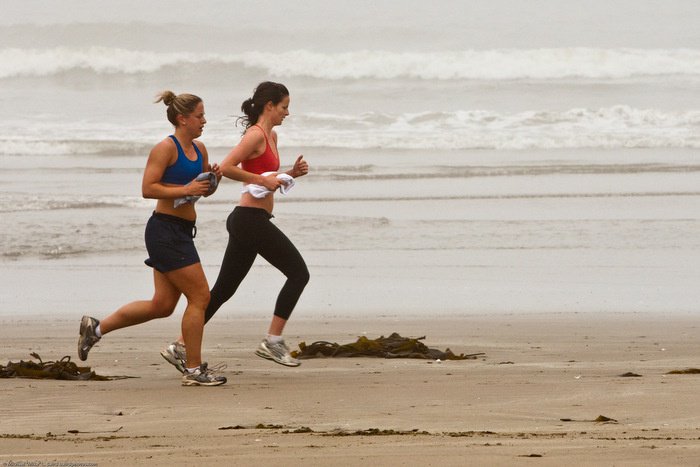Excuse Busters: Fight age with exercise

PHUKET: The female beauty industry in 2010, in America alone, was worth US$7 billion (227bn baht), with a further US$10bn (324bn baht) spent on cosmetic surgery. The desire to stay forever young dates at least as far back as the ancient Egyptians, many of whom used an ointment made from myrtle plants to avoid getting wrinkles, while Cleopatra bathed in milk and honey to keep her youthful looks.
It’s no secret that the human race has been fascinated for thousands of years with staying young.
Research is starting to show that exercise can actually reverse the effects of aging. Yes, I said it. Exercise can reverse the effects of aging, making you look and feel younger.
Most of us know that the benefits of regular exercise are nigh boundless. However, as more research is done, the more we start to realize that exercise not only slows down the aging process, but can even temporarily turn back the hands of time.
Exercise increases the body’s natural production of human growth hormone (HGH), incline growth factor (IGF-1) and testosterone. These are the youth serums of the body. We produce less and less of these as we age, and even less as everyday stressors are thrown at us.
A stressed body produces a hormone called cortisol, which robs your natural production of the anabolic hormones. These hormones are vital ingredients for the body to repair itself at a cellular level. They are the same substances that celebrities pay thousands of dollars to have injected into them so that they look younger.
“Every cell in the human body benefits from physical activity,” says Tim Church, director of Preventative Medicine at the Pennington Biomedical Research Center in the US.
Dr Church explains that people feel tangible results immediately after working out.
“Within an hour of exercising, you feel less anxious; that night you sleep better; and for 72 hours afterward, your body processes blood sugar more efficiently,” he says.
CELL AND MUSCLE REJUVENATION
A study published in 2009 in the journal Circulation found that middle-aged people who exercise regularly had telomeres that were as long as that of a 20-year-old. What are telomeres? Essentially, they are our cells’ clocks, which tick faster and faster as we age. Exercise has been shown to have a pausing effect on these tick-tock clocks of youth inside all of us.
Exercise also unlocks the stem cells in muscles, which helps to prevent muscle deterioration.
SKIN REJUVENATION
We all have heard of – and probably love – having a healthy glow. As we exercise, our heart rate increases, resulting in more blood being pumped through our bodies and reaching our arteries, veins and capillaries with more rigor. This more determined circulation allows our skin to dispel toxins that otherwise can sit under our skin and result in irritations and acne.
Additionally, as more blood reaches the skin’s surface, it delivers nutrients that repair damage from the sun and environmental pollutants. These nutrients also speed up the skin’s collagen production, stopping wrinkles in their tracks.
As we age, fibroblasts (the collagen-producing cells in the skin) become lazy and their numbers decrease. The nutrients delivered to the skin during exercise can help fibroblasts work more efficiently, which makes your skin look younger and also reduces body-wide inflammation. It also helps regulate skin-significant hormones and prevents free-radical damage.
HAIR REJUVENATION
Regular exercise also improves blood flow to your scalp, keeping your hair stronger and healthier. Your hair follicles are nourished by the oxygen-rich blood flow that rushes antioxidants to the area, destroying free radicals before they can damage your hair. It also lowers stress, which means your hair is less likely to be brittle or, worse, fall out.
Krix Luther is a fully qualified personal trainer with nearly a decade of experience specializing in strength and conditioning. For more information about Krix and his services, visit krixluther.com
— Krix Luther
Latest Thailand News
Follow The Thaiger on Google News:


























